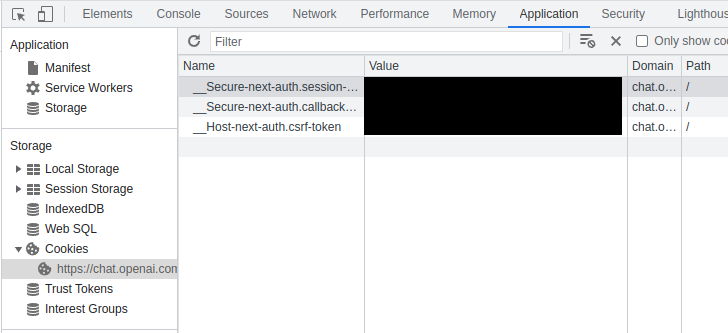This is a reverse-engineered wrapper for the OpenAI's ChatGPT model.
use chatgpt::prelude::*;
#[tokio::main]
async fn main() -> chatgpt::Result<()> {
// Starting client
let token: String = std::env::var("SESSION_TOKEN").unwrap(); // obtain the session token. More on session tokens later.
let mut client = ChatGPT::new(token)?;
client.refresh_token().await?; // it is recommended to refresh token after creating a client
// sending a simple message
// normal responses take ~10-30 seconds to complete
let response: String = client.send_message("Write me an HTTP server in Rust using the Axum framework.").await?;
// in case dynamic updates are important
// this method allows to receive the message as a stream
let mut stream = client.send_message_streaming(None, None, "Write me an HTTP server in Rust using the Axum framework.").await?;
while let Some(part) = stream.next().await {
// a single response part
println!("Got response part: {part:?}");
}
Ok(())
}Conversations are the threads in which ChatGPT can analyze previous messages and chain it's thoughts.
use chatgpt::prelude::*;
#[tokio::main]
async fn main() -> chatgpt::Result<()> {
let token: String = std::env::var("SESSION_TOKEN").unwrap();
let mut client = ChatGPT::new(token)?;
client.refresh_token().await?;
// We create a new empty conversation
let mut conversation = client.new_conversation();
let response: String = conversation.send_message(&client, "Write me a simple HTTP server in Rust").await?;
// Now we can refer to our previous message when talking to ChatGPT
let response: String = conversation.send_message(&client, "Now can you rewrite in Kotlin using the ktor framework?").await?;
// Streamed responses are also supported
let mut stream = conversation.send_message_streaming(&client, "Now can you rewrite it in TypeScript?").await?;
while let Some(response) = stream.next() {
// ...
}
Ok(())
}Since conversations only hold little data (conversation ID and latest message ID), you can have multiple conversations at the same time!
Session tokens allow access to the OpenAI API. You can find them in the Cookie storage of your browser.
Do this on the ChatGPT website
- Ctrl+Shift+I to open dev tools
- Navigate to the Application tab
- On the left, choose Storage->Cookies->https://chat.openai.com/chat
- Get the value of the cookie with name
__Secure-next-auth.session-token
Do this on the ChatGPT website
- Ctrl+Shift+I to open dev tools
- Navigate to the Storage tab
- On the left choose Cookies->https://chat.openai.com/chat
- Get the value of the cookie with name
__Secure-next-auth.session-token
- Refreshing tokens
- Sending message and receiving response
- Receiving response as a stream
- Scoped conversations
- Multiple conversations at the same time

